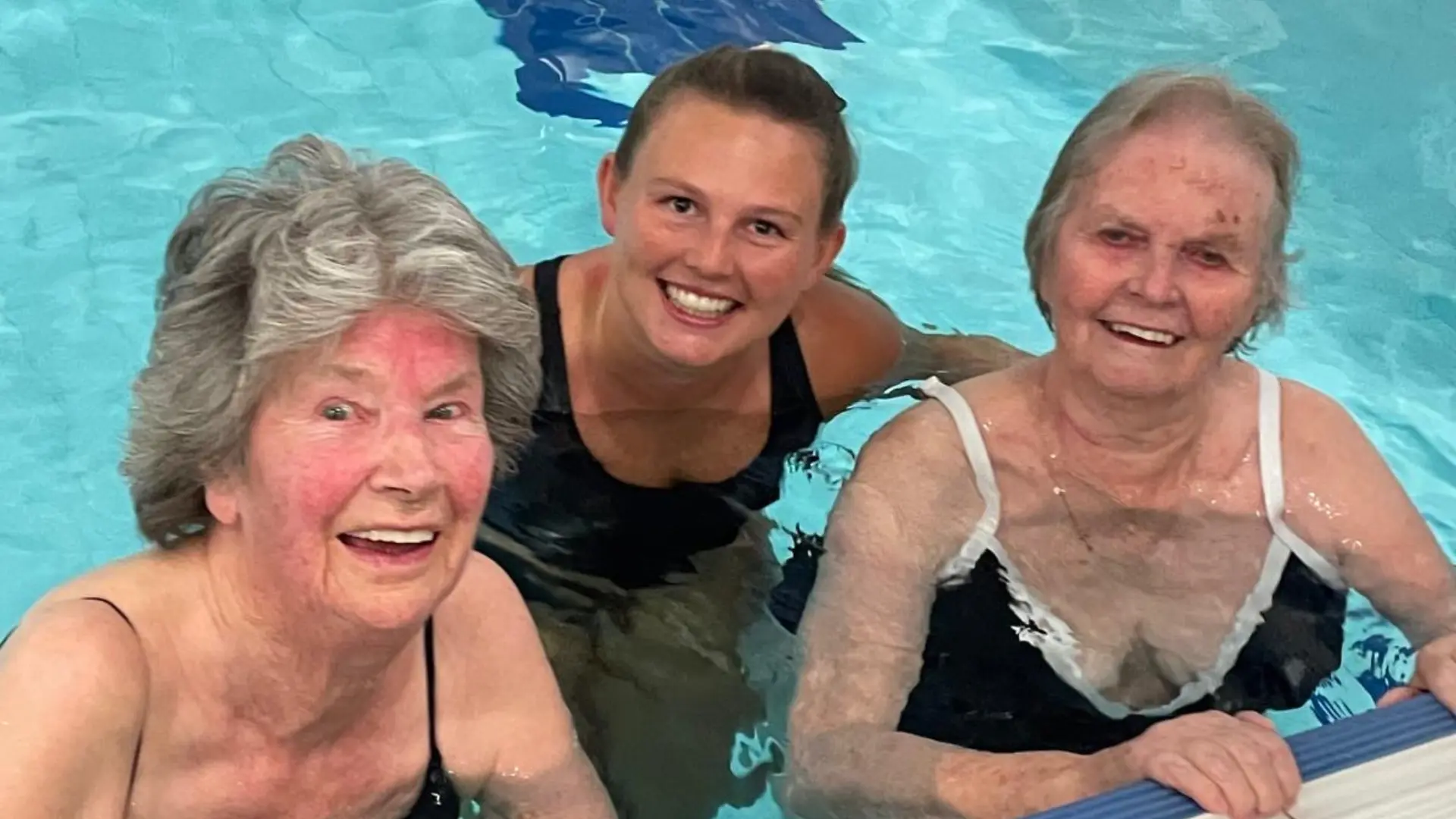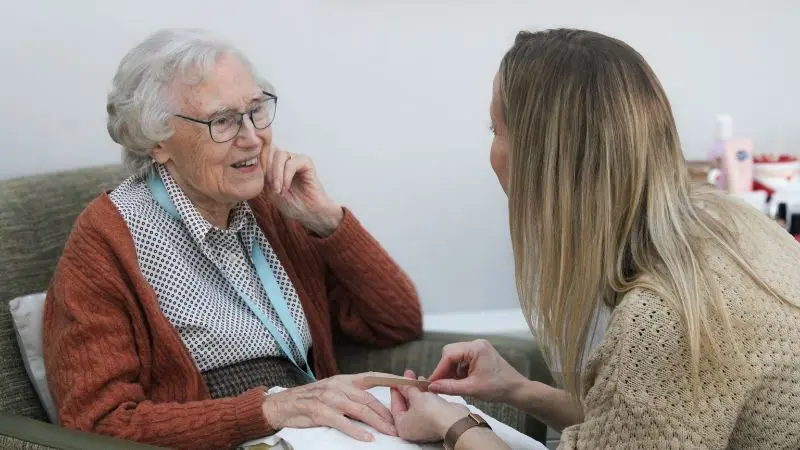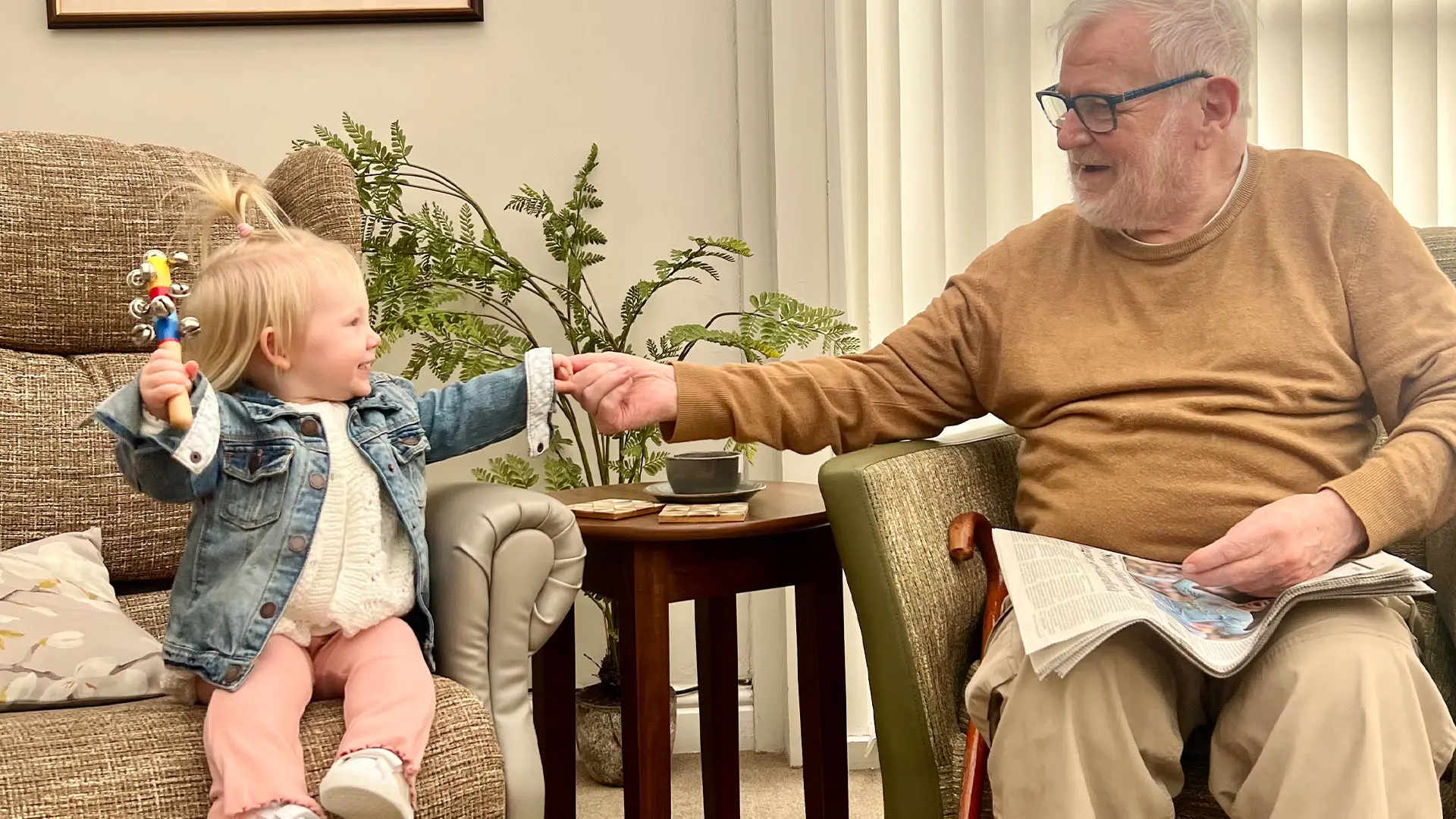Published Date - 24th May 2024 | Author - Grace Evans
In the hustle and bustle of modern UK life, it’s becoming increasingly rare for children to grow up around their grandparents. Unlike many other cultures, our younger generations often miss out on the rich experiences that come from close relationships with their elders. This growing gap can lead to a lack of understanding between generations and contribute to the social isolation and loneliness that many older adults face. That’s why I’m so passionate about bringing children into care homes and promoting intergenerational interactions.
At Salveo Care, we’ve opened our doors wide to local schools and nurseries, hosting playgroups for babies and toddlers, and encouraging our staff and residents to invite their young families to visit. It’s vital for children to grow up with fond memories of older adults, developing an inherent respect and understanding that will stay with them for life. This initiative is part of our broader mission: ensuring that older people are not forgotten about or seen as a burden.
These individuals were once the parents, teachers, servicemen and women who built the society we enjoy today. Is it too much to ask that we care for them in their twilight years, providing the support they need to enjoy every moment they can? I don’t think so. Intergenerational care, defined as ‘planned activities that purposefully bring together different generations in shared settings to share experiences that are mutually beneficial’, first took root in the 1970s in Tokyo when a nursery school and care home merged.
The concept quickly gained popularity and has been spreading in the UK, with projects like Channel 4’s “Old People’s Home for 4 Year Olds” showcasing the many benefits for both young and old. Beyond just entertainment, intergenerational interactions offer profound emotional, cognitive, physical, and social advantages.
Emotional Fulfilment
The presence of young people brings a refreshing burst of energy into our residents’ lives. You can see that children’s comical comments and sheer excitement for life lifts their spirits almost immediately.
Many of our residents don’t have grandchildren, so they would otherwise miss out on the fun that children bring. The simple affection and curiosity of a child can alleviate the feelings of loneliness and depression that many older people experience. Similarly, many children today don’t have grandparents, and they might miss out on the wisdom and warmth that older adults provide to them.
Cognitive Benefits
Engaging with children often results in improved mental alertness and memory for our residents. The need to pay attention, be creative, and solve problems during activities and conversations helps maintain cognitive functions and can even delay cognitive decline. For children, these interactions are equally enriching. Hearing stories from older adults enhances their understanding of history and different life perspectives. It also facilitates language development, empathy, patience, and communication skills. By interacting with older adults, children develop a broader vocabulary and greater confidence in expressing themselves.
Physical Activity
Having energetic children around can really motivate residents to engage in physical activities they might otherwise avoid. Whether it’s walking, dancing, or getting creative, the presence of children provides the right encouragement to get moving. We even witnessed our lovely resident, David, find the strength to lift a visiting toddler up for a big goodbye cuddle!
Combating Social Isolation and Anxiety
Regular visits from children offer vital social interaction, helping our residents connect and feel a true sense of purpose. This social boost is linked to numerous health benefits, including a reduced risk of dementia and various physical ailments like high blood pressure, arthritis, and cardiovascular issues.
Community Cohesion
Intergenerational programs build stronger, more cohesive communities. They encourage mutual respect and understanding between different age groups, breaking down stereotypes and prejudices. Watching children interact with residents who use wheelchairs or other specialist equipment without judgment or preconceptions is heartwarming and teaches them about this part of life.
The benefits of intergenerational care are profound and multifaceted. By embracing these interactions, we enrich the lives of both children and older people, while also creating an inclusive and empathetic community. My hope is that we can work together to bring generations closer, celebrate our elders, and the simple joy children bring to our lives!





